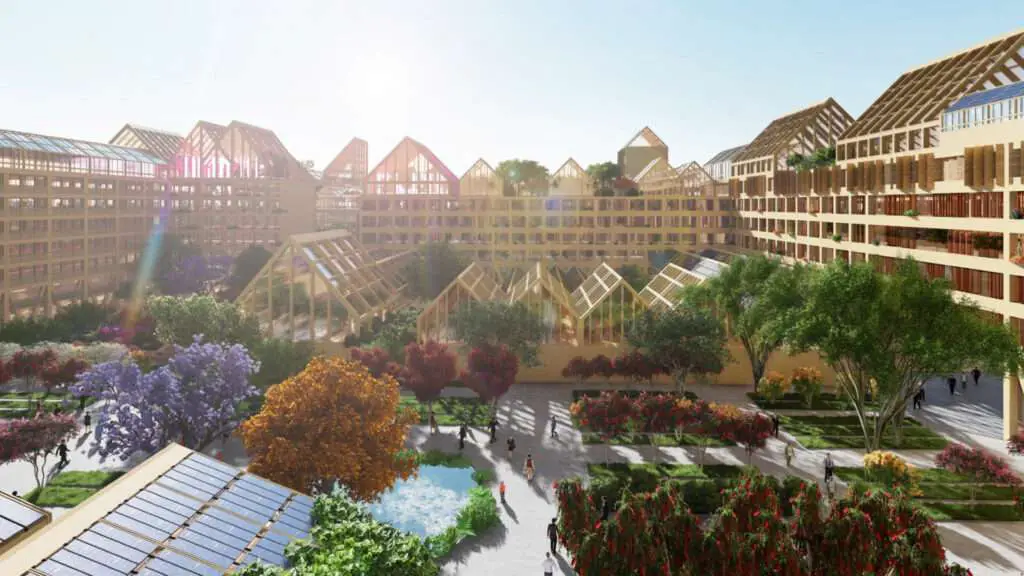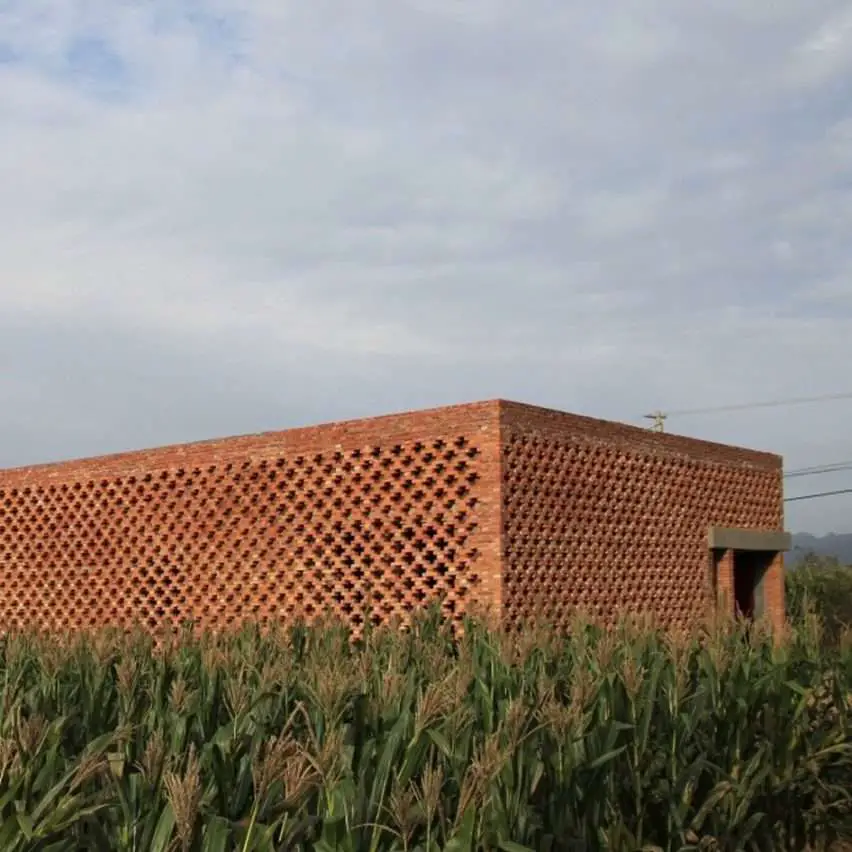In this article, we will be exploring the topic of China’s self-sufficiency in off-grid living. We will discuss what off-grid living entails and whether or not China is truly self-sufficient in this aspect. By examining various factors, such as energy production, food security, and sustainable practices, we will gain a better understanding of China’s efforts towards self-sufficiency. So, let’s dive into this fascinating subject and discover more about China’s off-grid living.
Exploring China’s Self-Sufficiency in Off-Grid Living
Off-grid living has gained significant attention in recent years as individuals and communities seek sustainable and self-sufficient lifestyles. In China, this trend has taken hold, with numerous benefits and challenges shaping the country’s journey towards self-sufficiency. In this article, we will delve into the benefits of off-grid living in China, the factors influencing the country’s self-sufficiency, government policies and initiatives promoting off-grid living, technological advancements facilitating this lifestyle, public awareness and acceptance, challenges faced, overcoming financial barriers, ensuring access to adequate resources, adapting to changing societal needs, success stories of self-sufficient communities, replicating and scaling up self-sufficiency, and the future of off-grid living in China.
Benefits of Off-Grid Living in China
Less reliance on fossil fuels
Off-grid living reduces reliance on fossil fuels by harnessing renewable energy sources such as solar power, wind energy, and hydropower. By harnessing clean energy, individuals and communities can minimize their carbon footprint and contribute to a greener future for China.
Reduced environmental impact
China, being the world’s largest emitter of greenhouse gases, is actively seeking ways to mitigate its environmental impact. Off-grid living significantly reduces the demand for traditional energy sources, mitigating air and water pollution, deforestation, and habitat destruction. This lifestyle choice promotes the preservation of natural resources and biodiversity.
Greater independence and self-sufficiency
Off-grid living empowers individuals and communities to become self-reliant in meeting their energy needs, reducing dependence on external sources. This greater independence allows for increased resilience during power outages or disruptions in the centralized energy grid. Moreover, off-grid living fosters a sense of community, cooperation, and self-sufficiency.
Factors Influencing China’s Self-Sufficiency in Off-Grid Living
Government policies and initiatives
The Chinese government has been actively promoting off-grid living through various policies and initiatives. These efforts include incentivizing the adoption of renewable energy, subsidizing off-grid infrastructure development, and implementing regulations that support off-grid communities. These policies play a crucial role in shaping the country’s self-sufficiency in off-grid living.
Technological advancements
Rapid advancements in renewable energy technologies have made off-grid living more accessible and affordable in China. Innovations in solar power systems, efficient energy storage solutions, and smart grid technologies have paved the way for a sustainable and reliable off-grid lifestyle.
Public awareness and acceptance
Public awareness and acceptance of off-grid living have grown significantly in China. Through education and awareness campaigns, showcasing successful off-grid communities, and highlighting the benefits of self-sufficiency, public perception and understanding of this lifestyle choice have expanded. This increased awareness and acceptance have further fueled the adoption of off-grid living across the country.

Government Policies and Initiatives Promoting Off-Grid Living
Incentives for renewable energy adoption
The Chinese government offers various incentives to encourage the adoption of renewable energy sources in off-grid living. These incentives include feed-in tariffs, tax benefits, and subsidies for the installation of solar panels, wind turbines, and other renewable energy systems. Such incentives significantly reduce the financial burden for individuals and communities transitioning to off-grid living.
Subsidies for off-grid infrastructure development
To ensure the availability of off-grid infrastructure, the Chinese government provides subsidies for the development of off-grid power systems, water management systems, and waste management solutions. These subsidies facilitate the establishment of self-sufficient communities and increase access to essential resources.
Regulations supporting off-grid communities
China has introduced regulations that support the development and establishment of off-grid communities. These regulations address issues such as land use, building codes, and zoning requirements, enabling the creation of legally recognized off-grid settlements. This regulatory framework provides a conducive environment for individuals and communities to pursue off-grid living.
Technological Advances Facilitating Off-Grid Living in China
Solar power systems
Solar power systems have become a cornerstone of off-grid living in China. Advances in solar panel technology, increased efficiency, and reduced costs have made solar energy a viable and sustainable solution for off-grid communities. Solar power enables the generation of electricity while minimizing reliance on traditional energy sources.
Efficient energy storage solutions
Effective energy storage is crucial for off-grid living, ensuring a constant supply of electricity even when renewable energy sources are not actively generating power. China has witnessed significant advancements in energy storage technologies, including the utilization of lithium-ion batteries, flow batteries, and hydrogen storage solutions. These technologies enhance the reliability and stability of off-grid power systems.
Smart grid technologies
Smart grid technologies play a vital role in optimizing the management and distribution of energy in off-grid communities. Through the integration of smart meters, monitoring systems, and demand response mechanisms, smart grids maximize energy efficiency, reduce wastage, and enable better load balancing. These technologies have been instrumental in improving the overall sustainability and performance of off-grid living in China.

Public Awareness and Acceptance of Off-Grid Living
Education and awareness campaigns
China’s government and non-governmental organizations have actively conducted education and awareness campaigns about off-grid living. These campaigns aim to inform and educate the public about the benefits of self-sufficiency, environmental impact, and the various technologies and practices associated with off-grid living. By disseminating information, these campaigns foster public understanding and acceptance.
Showcasing successful off-grid communities
Showcasing successful off-grid communities has been a pivotal aspect in increasing public awareness and acceptance of this lifestyle choice. Through documentaries, case studies, and media coverage, the achievements of self-sufficient communities have been highlighted, inspiring others to embrace off-grid living.
Promoting the benefits of self-sufficiency
To encourage the adoption of off-grid living, the Chinese government and organizations emphasize the numerous benefits of self-sufficiency. These benefits include energy independence, economic savings, reduced environmental impact, and enhanced community resilience. By promoting these advantages, public interest and acceptance of off-grid living continue to grow.
Challenges Faced in Achieving Self-Sufficiency in Off-Grid Living
Initial setup costs
One of the primary challenges in off-grid living is the initial setup costs. The installation of renewable energy systems, energy storage solutions, and off-grid infrastructure can be expensive. However, with the decreasing costs of renewable energy technologies and government subsidies, this barrier is gradually being overcome.
Limited availability of resources
In certain regions of China, access to essential resources such as water, land, and building materials may be limited. Off-grid communities must navigate these challenges by implementing effective water management systems, adopting sustainable agriculture practices, and exploring alternative construction materials. Addressing resource limitations is crucial for the long-term sustainability of off-grid living.
Adapting to changing societal needs
As societal needs and expectations evolve, off-grid communities must adapt to ensure their relevance and functionality. This includes incorporating modern amenities, healthcare services, inclusive education, and digital connectivity. Adapting to changing societal needs while maintaining self-sufficiency is a significant challenge and requires continuous innovation and community involvement.

Overcoming Financial Barriers in Off-Grid Living
Microfinance options
Microfinance institutions play a vital role in overcoming financial barriers for individuals and communities seeking to transition to off-grid living. These institutions provide small loans, financial services, and technical assistance to help finance the initial setup costs of renewable energy systems, infrastructure development, and other off-grid necessities.
Collaborative funding platforms
Collaborative funding platforms, such as crowdfunding and peer-to-peer lending, have emerged as alternative sources of financing for off-grid living projects in China. These platforms allow individuals and communities to raise funds from a wide range of supporters interested in promoting sustainable and self-sufficient lifestyles.
Promoting local entrepreneurship
Promoting local entrepreneurship is another avenue to overcome financial barriers in off-grid living. By nurturing and supporting local businesses that offer renewable energy solutions, energy-efficient products, and off-grid services, the Chinese government and organizations encourage economic growth while facilitating the transition to self-sufficiency.
Ensuring Access to Adequate Resources for Off-Grid Living
Effective water management systems
Access to clean and reliable water is essential for off-grid living. Implementing effective water management systems, including rainwater harvesting, water filtration, and efficient irrigation practices, ensures a sustainable and sufficient water supply for off-grid communities. These systems reduce reliance on external sources and promote self-sufficiency.
Sustainable agriculture practices
Off-grid communities in China rely on sustainable agriculture practices to meet their food needs. Techniques such as organic farming, permaculture, and aquaponics minimize the use of chemicals, conserve water, and maximize crop yield. By embracing sustainable agriculture, these communities reduce environmental impact and enhance their self-sufficiency.
Waste management solutions
Off-grid living emphasizes the importance of responsible waste management. Implementing recycling programs, composting, and proper disposal methods enables off-grid communities to minimize waste, reduce pollution, and promote a circular economy. These waste management solutions contribute to the self-sufficiency and sustainability of off-grid living in China.
Adapting to Changing Societal Needs in Off-Grid Communities
Enhancing healthcare services
Off-grid communities are continually working to enhance their healthcare services. This includes establishing community health centers, training local healthcare professionals, and improving emergency response systems. Adapting to changing healthcare needs ensures the well-being and safety of individuals living off-grid.
Promoting inclusive education
Education plays a vital role in off-grid communities, and promoting inclusive education is essential. Efforts are made to ensure equal access to education for all, regardless of age, gender, or background. This includes setting up community schools, providing distance learning opportunities, and encouraging the exchange of knowledge within off-grid communities.
Embracing digital connectivity
While off-grid living emphasizes a sustainable and self-sufficient lifestyle, digital connectivity is becoming increasingly important. Embracing technologies such as internet access, mobile communication, and e-commerce platforms enables off-grid communities to access information, connect with the outside world, and participate in economic and social activities.
Success Stories of Self-Sufficient Off-Grid Communities in China
Zeguo Village in Zhejiang province
Zeguo Village in Zhejiang province is an inspiring example of a self-sufficient off-grid community. The village has implemented solar panels, a micro-grid system, and efficient energy storage solutions to meet its electricity needs. Furthermore, the community practices organic farming, sustainable water management, and has established a local economy to support its self-sufficiency.
Huangbaiyu Eco-Village in Jilin province
Huangbaiyu Eco-Village in Jilin province showcases the integration of renewable energy and sustainable building practices. The community utilizes solar and wind power, energy-efficient buildings, and green infrastructure. The village not only promotes self-sufficiency but also serves as an educational hub for visitors interested in sustainable living.
Huilongguan Eco-Valley in Beijing
Huilongguan Eco-Valley in Beijing is another success story of self-sufficient off-grid living. The community relies on solar power, rainwater harvesting, and organic farming to meet its energy and resource needs. Additionally, the valley’s waste management practices and commitment to environmental conservation contribute to its overall sustainability.

Replicating and Scaling Up Self-Sufficiency in Off-Grid Living
Sharing best practices and knowledge
Sharing best practices and knowledge is crucial in replicating and scaling up self-sufficiency in off-grid living across China. Platforms, conferences, and networking events that bring together practitioners, experts, and policymakers facilitate the exchange of ideas, experiences, and lessons learned. By sharing knowledge, successful off-grid models can be replicated and adapted to various contexts.
Supporting research and development
Investing in research and development is essential to drive innovation and improve off-grid living technologies and practices. Government funding, collaborations with academic institutions, and partnerships with industry players can accelerate advancements in renewable energy, energy storage, sustainable agriculture, and other areas relevant to self-sufficiency in off-grid living.
Creating networks and platforms for collaboration
Creating networks and platforms for collaboration fosters cooperation among off-grid communities, organizations, and stakeholders. These networks enable the sharing of resources, technical expertise, and funding opportunities. By collaborating, self-sufficient communities can collectively address common challenges and work towards a more sustainable future.
The Future of Off-Grid Living in China
Expanding renewable energy capacity
The future of off-grid living in China lies in the expansion of renewable energy capacity. This involves further investment in solar power, wind energy, hydropower, and other clean energy sources. The integration of energy-efficient technologies, grid-tied systems, and innovative storage solutions will facilitate a more reliable and sustainable off-grid lifestyle.
Promoting sustainable lifestyles
Promoting sustainable lifestyles is a key aspect of the future of off-grid living in China. This entails encouraging individuals and communities to adopt green practices, reduce consumption, and prioritize sustainable choices in their daily lives. Education, awareness campaigns, and incentives can contribute to widespread adoption of sustainable lifestyles.
Incorporating off-grid principles in urban planning
Incorporating off-grid principles in urban planning is crucial for a greener and more sustainable future. Integrating renewable energy systems, efficient waste management, green spaces, and community-focused designs into urban areas can create self-sufficient neighborhoods and cities. By embracing off-grid principles, China can build resilient and sustainable urban environments.
Conclusion
China has made significant progress in achieving self-sufficiency in off-grid living. The benefits of less reliance on fossil fuels, reduced environmental impact, and greater independence and self-sufficiency have driven individuals and communities to embrace this lifestyle choice. Government policies, technological advancements, public awareness, and acceptance have played significant roles in promoting off-grid living in China. However, challenges such as initial setup costs, limited availability of resources, and adapting to changing societal needs must be addressed. Overcoming financial barriers through microfinance options, collaborative funding platforms, and promoting local entrepreneurship is crucial. Ensuring access to adequate resources, adapting to changing societal needs, and sharing success stories are vital steps towards achieving widespread self-sufficiency. The future of off-grid living in China lies in expanding renewable energy capacity, promoting sustainable lifestyles, and incorporating off-grid principles in urban planning. With continued efforts and a collective commitment to sustainability, China has the potential to lead the way towards a greener and more self-sufficient future.




